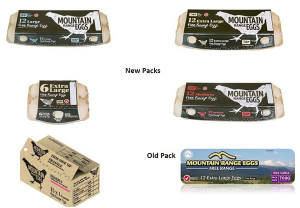With 250 teachers sick from a conference, and an additional 20 people sick in a separate outbreak around Brisbane – but apparently using the same egg supplier – people are now being told it’s possible dirty eggs may be the cause.
 This isn’t CSI, with its groovy UV lights that make great television but lousy science.
This isn’t CSI, with its groovy UV lights that make great television but lousy science.
This also isn’t rocket surgery: publicly release all surveillance data on raw eggs in Queensland (or Australia), publicly release the menu items at the Queensland Convention Center and the Grocer and Grind on the Gold Coast where two of their own chefs got sick, and tell chefs to stop using raw eggs in dishes they have to so expertly craft from scratch like aioli or mayonnaise.
This is nothing new and we have been documenting the problem for years. A table of Australian raw egg Salmonella outbreaks is available here (or here to download the spreadsheet).
Queensland Health yesterday revealed 1,895 cases of Salmonella had been detected since the start of the year, more than double previous levels, prompting an alert to businesses involved in food preparation and the wider community.
Safe Food Production Queensland general manager Phil Pond said Darling Downs Fresh Eggs had immediately issued the voluntary recall of the dirty eggs once notified.
Mr Pond said salmonella bacteria was carried in many animals, especially poultry and pigs, and any ingestion of fecal matter could be harmful to people.
But because the fecal matter could not be entirely eliminated, Queensland had adopted a mitigation strategy which included limiting the sale of any produce, including dirty eggs.
 “Queensland has had a food safety scheme since 2005 with a salmonella mitigation strategy,” Mr Pond said.
“Queensland has had a food safety scheme since 2005 with a salmonella mitigation strategy,” Mr Pond said.
“That’s what this is, a mitigation measure.
“Darling Downs Fresh Eggs has done everything possible to alert the public of the possible dirty eggs in the market place.”
Not quite.
Queensland Health’s Sophie Dwyer said an increase in raw egg consumption, poor food handling and hygiene standards, and consumption of cracked and dirty eggs had all contributed.
“One of the issues is that sometimes people think dirty eggs indicate they’re more healthy, or naturally produced,” Dwyer said.
“But if they are dirty it doesn’t mean they’re safer, they’re more hazardous.
“We are seeing a wider range of products being produced in the home and restaurants that include raw eggs. Products like aioli, mayonnaise, mousse and tiramisu use raw eggs and therefore don’t have a step that would kill any salmonella bacteria.”
Peter Collignon of the Austalian National University said salmonella cases were increasing each year, with more than 10,000 reported cases annually, adding, “The problem is that in Australia, we don’t take the same precautions as other countries do to keep salmonella rates down.”
The restaurant industry was a major source of contamination, he said, because it was impossible for consumers to tell which meals on a menu contained raw egg.
